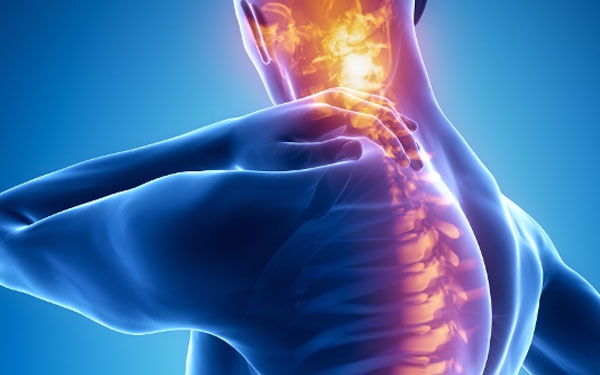Chronic pain affects millions of people worldwide, often leading to a decreased quality of life. Unlike acute pain, chronic pain persists for extended periods, often without a clear cause. Effective management of chronic pain requires a balanced approach that combines medication with lifestyle changes. This comprehensive guide explores the strategies and treatments that can help individuals manage chronic pain effectively.
Understanding Chronic Pain
What is Chronic Pain?
Chronic pain is defined as pain that lasts for more than three to six months, extending beyond the typical healing period. It can stem from various conditions, including:
- Arthritis: Inflammation of the joints causing pain and stiffness.
- Fibromyalgia: Widespread musculoskeletal pain accompanied by fatigue and sleep disturbances.
- Neuropathy: Nerve damage resulting in pain, numbness, and tingling.
- Chronic Back Pain: Persistent pain in the back, often due to injury or degenerative conditions.
- Migraines: Severe headaches that can last for hours or days.
Symptoms of Chronic Pain
Chronic pain symptoms can vary but often include:
- Persistent Aching: Continuous pain that may fluctuate in intensity.
- Burning or Stabbing Sensations: Sharp, electric shock-like pains.
- Stiffness and Swelling: Common in conditions like arthritis.
- Fatigue: Chronic pain can lead to constant tiredness.
- Sleep Disturbances: Difficulty sleeping due to pain.
- Mood Changes: Increased anxiety, depression, and irritability.
Balancing Medication and Lifestyle Changes
Medications for Chronic Pain
Medications can play a crucial role in managing chronic pain. The choice of medication depends on the type and severity of pain.
Nonsteroidal Anti-Inflammatory Drugs (NSAIDs)
NSAIDs, such as ibuprofen and naproxen, are commonly used to reduce inflammation and alleviate pain.
Acetaminophen
Acetaminophen (Tylenol) can be effective for mild to moderate pain relief.
Anticonvulsants
Medications like gabapentin (Neurontin) and pregabalin (Lyrica) are used to treat nerve pain.
Antidepressants
Certain antidepressants, such as amitriptyline and duloxetine (Cymbalta), can help relieve chronic pain by altering pain perception.
Opioids
Opioids are potent pain relievers but are generally reserved for severe pain due to the risk of addiction and side effects. They should be used under strict medical supervision.
Lifestyle Changes for Chronic Pain Management
In addition to medications, lifestyle changes are essential for managing chronic pain effectively. These changes can help reduce pain intensity and improve overall well-being.
1. Regular Exercise
Engaging in regular physical activity helps release endorphins, the body’s natural painkillers. Exercise can also improve strength, flexibility, and mobility. Low-impact exercises such as walking, swimming, and yoga are particularly beneficial.
2. Healthy Diet
A balanced diet rich in vitamins and minerals supports overall health and can help manage pain. Foods high in omega-3 fatty acids, antioxidants, and anti-inflammatory properties are especially helpful. Incorporate plenty of fruits, vegetables, whole grains, and lean proteins into your diet.
3. Adequate Sleep
Quality sleep is crucial for pain management. Establishing a regular sleep routine and creating a comfortable sleep environment can improve sleep quality and reduce pain. Avoid caffeine and electronic devices before bedtime to enhance sleep hygiene.
4. Stress Management
Chronic pain can be exacerbated by stress. Techniques such as meditation, deep-breathing exercises, and progressive muscle relaxation can help reduce stress and improve pain tolerance. Mindfulness and relaxation techniques can also enhance overall well-being.
5. Weight Management
Maintaining a healthy weight can reduce stress on joints and alleviate pain, especially in conditions like arthritis. Combining a healthy diet with regular exercise can help achieve and maintain a healthy weight.
Combining Medications and Lifestyle Changes
Combining medications with lifestyle changes can provide a more comprehensive approach to managing chronic pain. Medications can offer immediate relief, while lifestyle changes can provide long-term benefits.
Creating a Personalized Pain Management Plan
Working closely with healthcare professionals to develop a personalized pain management plan is essential. This plan should address the specific needs and conditions of the individual, combining medications, physical therapy, psychological support, and lifestyle modifications.
Monitoring and Adjusting Treatment
Regular monitoring and adjustment of treatment plans are crucial for effective pain management. As conditions change, treatment plans may need to be modified to ensure optimal pain relief and quality of life.
Conclusion
Managing chronic pain requires a balanced approach that combines medication with lifestyle changes. By incorporating regular exercise, a healthy diet, adequate sleep, stress management, and weight management into daily routines, individuals can achieve more effective and long-lasting pain relief. Always consult with healthcare professionals to develop a personalized treatment plan tailored to your specific needs and conditions.



